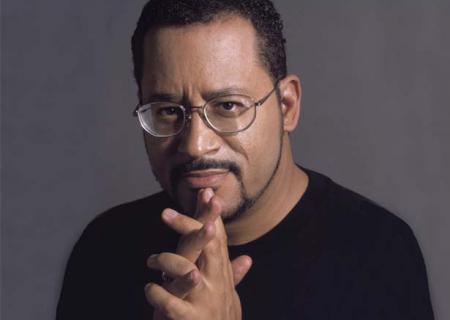Best selling author and scholar Michael Eric Dyson will deliver the keynote address at Lehigh University’s Malcolm X Conference, February 17 at 7:00 p.m. in Zoellner Arts Center's Baker Hall.
 Dyson, who twice received the NAACP Image Award, has been named one of the 150 most powerful African Americans by Ebony magazine. He has written 16 books weighing in on a vast array of issues, and has taught at some of the nation’s most prestigious universities and appeared on numerous media outlets.
Dyson, who twice received the NAACP Image Award, has been named one of the 150 most powerful African Americans by Ebony magazine. He has written 16 books weighing in on a vast array of issues, and has taught at some of the nation’s most prestigious universities and appeared on numerous media outlets.
This three-day conference will be exploring the legacy of Malcolm X on the occasion of the 50th anniversary of his assassination. It provides scholars with an opportunity to reflect on his life, his contributions to society and social justice in America, and give academics the chance to share their works and thoughts with Lehigh's students and professors.
His first book, 1993’s Reflecting Black: African American Cultural Criticism, is credited with helping establish the field of black American cultural studies. His book, Making Malcolm: The Myth and Meaning of Malcolm X is considered by many to be one of the most important books on African American culture of the 20th century. His New York Times best-selling book, Is Bill Cosby Right? Or Has the Black Middle Class Lost Its Mind? challenges comedian Bill Cosby’s criticism of poor blacks, and exposes the class and generational divide in black America.
Dyson’s other New York Times best-selling book titled April 4, 1968: Martin Luther King Jr.’s Death and How It Changed America, explores what America would be like if Martin Luther King had lived longer and how his death affected shifts in black leadership during the following four decades.
His most recent book, Can You Hear Me Now?, touches on problems of humanity and the latest topics of today including race and the presidency.
Dyson is University Professor of Sociology at Georgetown University and is teaching a course on the inadvertent political gravity of rap music, called “Sociology of Hip Hop: Jay-Z.” He discusses race, gender, ethnicity, and social injustice through the lyrics of the artist Jay-Z.
-Christina Holden '15






